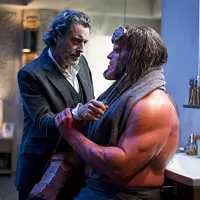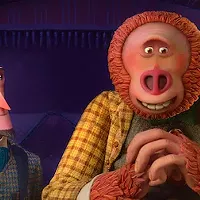

NEBRASKA
***1/2
DIRECTED BY Alexander Payne
STARS Bruce Dern, Will Forte
The 1970s proved to be the playground for an inordinate number of great actors, and if Jack Nicholson, Robert De Niro and Gene Hackman are among those tagged as the era's national treasures, then it's only fair for Bruce Dern to be deemed its buried treasure.
A mainstay in the cinema of that vibrant decade, Dern's achievements included nabbing a Best Supporting Actor Oscar nomination for Coming Home, creating one of the screen's great psychopaths in Black Sunday, playing Tom Buchanan in the best film version of The Great Gatsby and starring in Alfred Hitchcock's final picture, Family Plot. He's remained busy since this notable run ended in the early 1980s, but except for a recurring role on Big Love, it has almost always been in trifling parts. Thus, it's Alexander Payne to the rescue, as the director of Election, Sideways and The Descendants has provided Dern with one of the meatiest roles of his long career in Nebraska. Working from a script by Bob Nelson, Payne has allowed the actor to recapture the spotlight, and he responds with an excellent performance of the lived-in kind, free of artifice and making no plays for audience sympathy or understanding. If we respond charitably toward his ornery, infuriating and not particularly pleasant character, it's only because we determine it's the right thing to do, not because of any showboat softening on Dern's part.
This cantankerous coot, Woody Grant, has spent his life complacently — even at times unhappily — married to the outspoken Kate (a hilarious June Squibb), serving as a poor father to his now-grown sons David (Will Forte, wisely taking a break from awful comedies) and Ross (Bob Odenkirk) and drowning himself in the bottle whenever possible. Now a senior citizen who might have a touch of Alzheimer's about him, he's motivated to get off the couch because he believes he won a million dollars and wants to head from his Billings, Mont. home to Lincoln, Neb. to pick it up. He didn't win anything, of course — he merely received one of those sweepstakes scam letters used to hawk magazine subscriptions — but he won't hear of it, convinced that the cash is being kept for him at the company's Lincoln headquarters. Once it becomes apparent that he's going to keep wandering off with the intent of hoofing it until he drops, David finally decides to drive the old man himself.
Nebraska is reminiscent of Payne's 2002 film About Schmidt, in which another deeply flawed individual (played by Jack Nicholson) embarks on a road trip in which he never quite discovers enough about himself or others like he should. Yet it also stirs memories of Peter Bogdanovich's The Last Picture Show: Like that 1971 classic, this new film is also shot in black and white (by Phedon Papamichael), a creative decision that serves to make the landscapes even more stark and the characters' lives even more drab.
Payne was born in Nebraska while Nelson hails from neighboring South Dakota, so this isn't a case of coastal elitists making fun of Red State rubes from afar. While some of the characters are accurate reproductions of rural yokels (especially a pair of mouth-breathing brothers played by Devin Ratray and Tim Driscoll), others, like Woody's bullying buddy Ed Pegram (Stacy Keach), will be familiar to everyone from Poughkeepsie to Pasadena. Indeed, it's the film's universal truths — among them the constant splintering and rebuilding of familial relations, the open road as an open-ended metaphor, and the need for continued purpose and relevancy as one grows older — that makes Nebraska less a movie involving a specific state and more a film evoking a specific state of mind.


